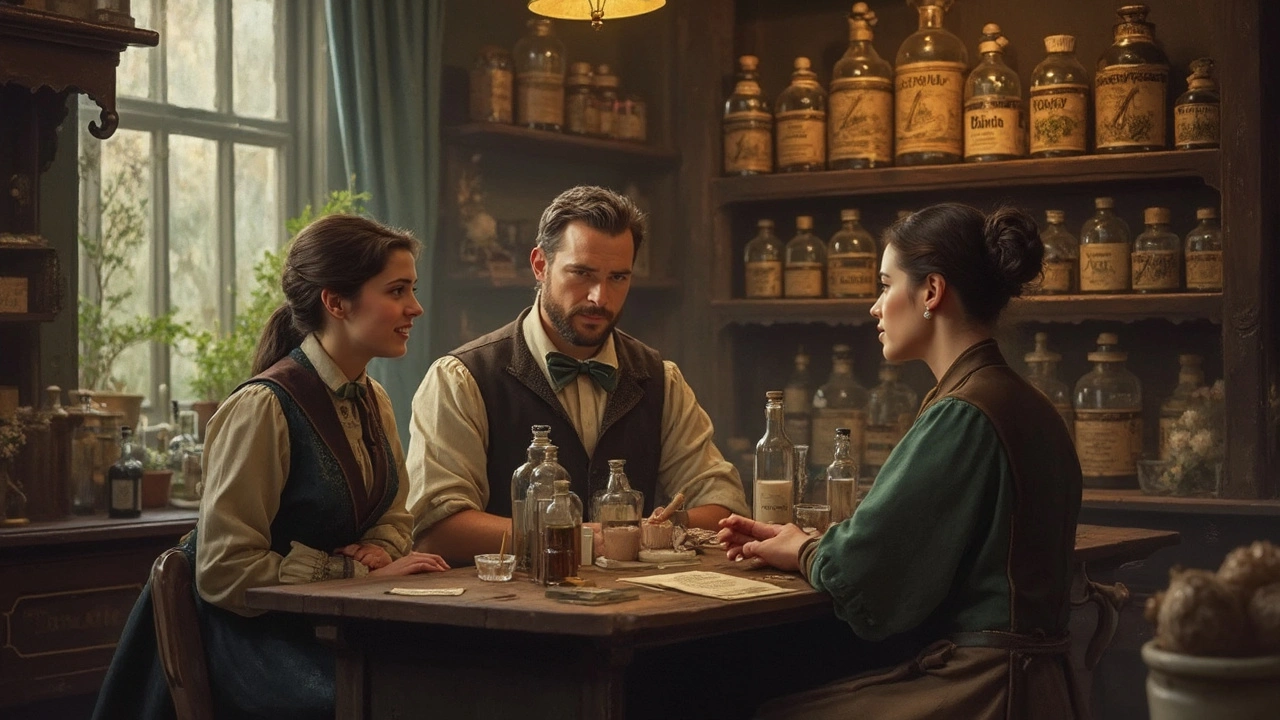Belladonna: What it is, how it’s used, and why to be careful
One plant can be medicine and poison at the same time — that’s belladonna, also called deadly nightshade. Its active chemicals (atropine, scopolamine, hyoscyamine) affect your nervous system. In tiny, controlled doses those compounds are useful in medicine. Straight from the plant they’re unpredictable and dangerous.
People have used belladonna for centuries to treat cramps, pain, and some nerve problems. Today the useful parts of the plant are isolated and made into strict pharmaceutical products. For example, atropine is used in emergencies for slow heart rate and in eye drops to dilate pupils. That doesn’t mean you should pick or sip wild belladonna — home herbal use risks severe poisoning.
Recognize belladonna poisoning — quick signs to watch
Early symptoms are often anticholinergic: dry mouth, big pupils, blurry vision, flushed red skin, and fast heartbeat. As it gets worse you might see confusion, hallucinations, fever, urinary retention, seizures, or loss of consciousness. Kids and pets can get very sick from just a few berries. If you suspect someone swallowed belladonna, call emergency services or your local poison control right away.
If first aid is needed, don’t try home remedies like inducing vomiting unless told by poison control. Keep the person calm and cool, remove any plant material from their mouth, and be ready to give exact information about what and how much was taken.
When belladonna compounds are useful — and how to stay safe
There are legitimate medical uses for belladonna-derived drugs, but only under a doctor’s care. Ophthalmologists use atropine drops for certain eye exams or conditions. Scopolamine patches can help with severe motion sickness. Hospitals use atropine in controlled doses for specific emergencies. Always get these products from a licensed pharmacy with a prescription — don’t use raw herbs or unverified online mixes.
Watch for interactions and risks: belladonna-type drugs worsen glaucoma, urinary retention, enlarged prostate (BPH), and some heart problems. Older adults are more likely to have harmful side effects like confusion and falls. Tell your doctor about other medicines you take, especially antihistamines, tricyclic antidepressants, or other anticholinergic drugs.
Looking for safer options? For tummy cramps try peppermint oil or talk to your doctor about proven antispasmodics. For motion sickness, OTC meclizine is a reasonable alternative. For sleep or anxiety, try sleep hygiene, melatonin, or discuss other meds with your clinician instead of self-medicating with belladonna.
If you’re curious about belladonna or think you’ve been exposed, ask a pharmacist or call poison control. Real medicine uses isolated compounds under strict control — don’t risk raw plant use at home.

Belladonna Benefits: Exploring Belladonna’s Transformative Effects on Health
Discover how belladonna, a powerful herbal dietary supplement, could impact your well-being. This article unveils the extraordinary history, science-backed benefits, surprising facts, and safety considerations of belladonna. Get practical tips for safely integrating belladonna into your daily routine. If you've ever wondered how an ancient plant can still be relevant in modern health, this read is a must.
© 2026. All rights reserved.
